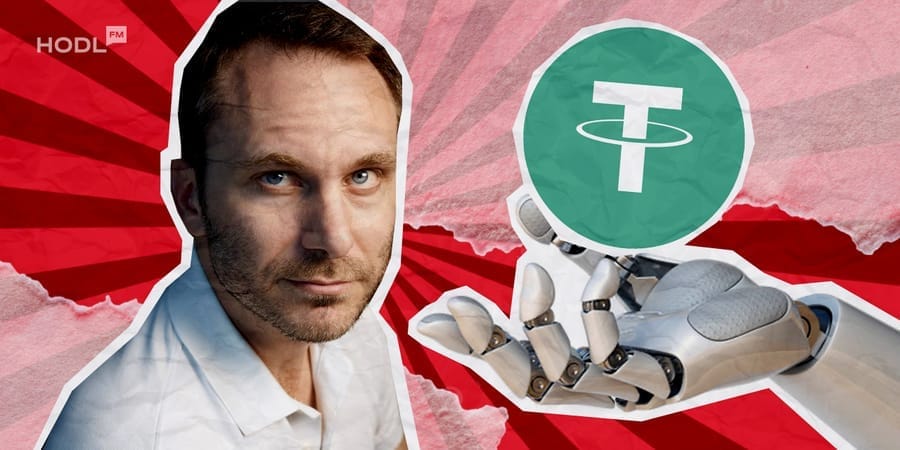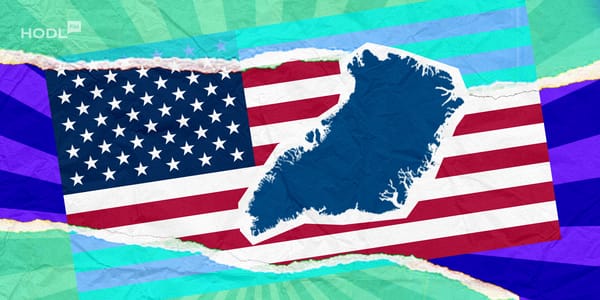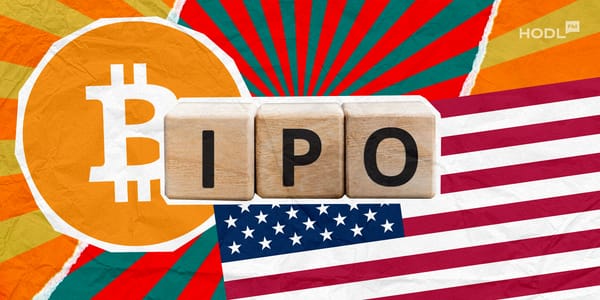Tether’s CEO Paolo Ardoino, has spilled the beans: the stablecoin giant is gearing up to make its move in the U.S. market. In a recent interview with Bloomberg Television, Ardoino shared that the company is “well in progress” on its domestic strategy in the U.S., just days after President Trump signed the GENIUS Act into law to regulate stablecoins. Seems like things are heating up!
Back in April, Ardoino teased Tether’s plans to roll out a brand-new stablecoin aimed at U.S. institutional clients. This wouldn’t be just any stablecoin, either; it would be faster, slicker, and more efficient, targeting institutions that are hungry for quicker settlements. No word yet on the full details, but we’ll have to wait for the announcement in the next couple of months. Tether isn’t shy about making big moves!
Currently, Tether’s USDT reigns as the world’s largest stablecoin, with a massive market cap of $162 billion. But as Ardoino hinted, the new stablecoin could be a game-changer for institutional players looking to do business on a whole new level. Tether’s about to take things to the next level, if they can pull it off.

The Ever-So-Controversial Tether Audits
Of course, Tether’s reputation has come under scrutiny in the past. They’ve been criticized for not providing a full independent audit of their stablecoin reserves, instead opting for quarterly attestations signed by BDO Italia. It’s no surprise, then, that Ardoino recently hired a new CFO, Simon McWilliams, to lead the charge in securing a full audit. And getting a Big Four audit? Yep, that’s on top of the priority list. But let’s be real, will they ever manage to keep everyone happy in that department?
The GENIUS Act
Tether was also present at the signing of the GENIUS Act, the bill that creates a federal framework for stablecoins. The law mandates that stablecoins must be fully backed by U.S. dollars (or similarly liquid assets) and requires annual audits for issuers with a market cap of over $50 billion. This, of course, means more scrutiny for Tether, but it’s also the perfect time to enter the market, right? But the competition is fierce, traditional banks, including JPMorgan and Citigroup, are gearing up to launch their own stablecoins.
Tether's Advantage in the U.S. Market
When asked about these competitors, Ardoino didn’t mince words. Sure, those big banks might have the edge in the short term, but Tether’s got the technology and market know-how to outshine them in the long run.
"They can compete and probably be better than us short-term in the U.S., but we have better technology,” Ardoino confidently stated. “We understand this market better than anyone else.”
Bold claim, right? But can they back it up?
And lastly, when asked if Tether had any plans to go public like its competitor Circle, Ardoino shut that down. Tether is staying private for now, no IPO in sight. With competition heating up and regulations looming, it looks like Tether’s ready for the fight but isn’t ready to throw in the towel just yet. Watch this space.

Disclaimer: All materials on this site are for informational purposes only. None of the material should be interpreted as investment advice. Please note that despite the nature of much of the material created and hosted on this website, HODL FM is not a financial reference resource, and the opinions of authors and other contributors are their own and should not be taken as financial advice. If you require advice. HODL FM strongly recommends contacting a qualified industry professional.





